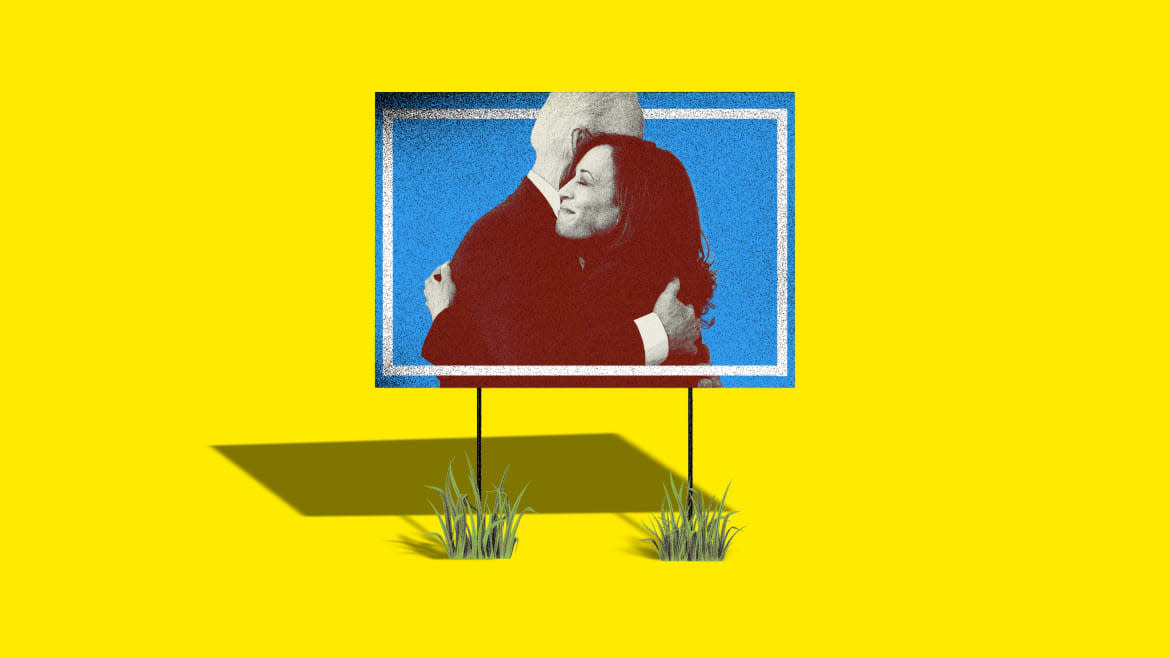Kamala Harris Shouldn’t Worry About Getting Dumped as Vice President

Quite a few political commentators are calling for President Joe Biden to drop Vice President Kamala Harris from the presidential ticket and replace her with a newer, presumably more electorally popular, running mate.
At an earlier point in American history, Harris may have had cause for concern. This was a popular tactic for presidents, with eight presidents tossing aside their VP during the re-election run. During the entire 19th century, due to a combination of death, ticket dumping, and one-term presidencies, only two president-vice president teams ran for re-election.
But Harris doesn’t have to worry. The cost of dumping a vice president now would undoubtedly outweigh any perceived gain.
It’s Time to Give Kamala Harris Her Due
The idea of a new face on the ticket as a way to change the narrative comes up every four years. Biden himself was the subject of such rumors, which hinted that Hillary Clinton might replace him in the 2012 re-election run. Similar discussions cropped up around Mike Pence, Dick Cheney, and Dan Quayle. There are longtime claims that John Kennedy would have dropped Lyndon Johnson for his re-election run, and Dwight Eisenhower wanted to replace Richard Nixon.
Of course, none of this happened, and for good reason.
The choice of a vice president is arguably the most important decision a presidential candidate makes—especially since, post World War II, vice presidents are regularly the frontrunners when seeking their party’s nomination.
But there is not much evidence that the VP choice has an electoral impact. Richard Nixon, one of only two men to be on five national tickets, felt that the running mate was only a negative for a presidential ticket. Even one of the most famous moments in vice presidential history, Lloyd Bentsen’s drubbing of Dan Quayle in the 1988 veep debate, appeared to have no impact on the end result, when then-Vice President George H.W. Bush soundly beat then-Massachusetts Governor Mike Dukakis in the general election. There is also little evidence that voters put much thought into the VP choices in 2020, despite the advanced age of both major party candidates.
Tucker Carlson and Megyn Kelly Remain Obsessed With the Obamas
But switching out VP on the ticket could present a very different story, with many strong downsides. It would make the president look both weak and disloyal. It would turn off any supporters of the vice president. And since Harris is a trailblazer in two key focus areas for Democrats, women and Black voters, dumping her from the ticket poses a legitimate danger for Democratic turnout.
Most importantly, while there would be a momentary bust of excitement, the narrative would quickly curdle. The focus, especially under furious attacks by opponents, would be on questioning the president’s original decision-making in the first place.
Earlier in American history, presidents didn’t really choose the VP. The running mate was instead a compromise with the losing side in the presidential nomination, which itself was chosen not by the people but by convention delegates. The result was that presidents didn’t fear facing much blowback from a switch.
Now that presidents are chosen by primaries and freed from the negotiations of the convention selection process, candidates personally choose their running mate—making any “bad” choice their’s alone.
Unsurprisingly, the only president to drop a VP since World War II was the unelected Gerald Ford, who replaced the similarly unelected Nelson Rockefeller on the ticket with Kansas Sen. Bob Dole, and Ford’s decision was focused on warding off a primary challenge from the more conservative Ronald Reagan.
Kamala Harris Is on Her Way to Becoming the Next Dan Quayle
We saw a version of the negative impact in the waning days of the 1992 race, when George H.W. Bush made a big announcement that he would replace both Treasury Secretary Nicholas Brady and Budget Director Dick Darman in a second term. Needless to say, that only brought forth questions as to why he appointed them in the first place, and why he didn’t make a move earlier.
It would be hard to imagine that similar questions about a bad choice wouldn’t come up if Biden were to make an even more drastic choice.
Like basically every vice president in U.S. history, Kamala Harris is facing criticism and has a real challenge in pointing to her own accomplishments in a job without much specific power. Putting someone new in may seem like an exciting change of pace, but there is little benefit for Biden’s campaign. Harris has little to fear from this quadrennial talking point.
Joshua Spivak, the author of Recall Elections: From Alexander Hamilton to Gavin Newsom, is a Senior Research Fellow at Berkeley Law’s California Constitution Center and a Senior Fellow at the Hugh L. Carey Institute for Government Reform at Wagner College.
Get the Daily Beast's biggest scoops and scandals delivered right to your inbox. Sign up now.
Stay informed and gain unlimited access to the Daily Beast's unmatched reporting. Subscribe now.


